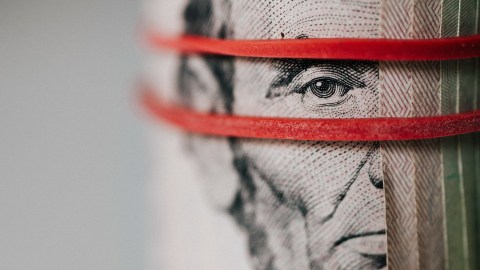Millennials reconsidering finances and future under COVID-19

It can be tempting to look at the economic history of the last two decades and derive a certain lesson. That lesson being: The millennial generation is screwed. The Washington Post even tagged millennials as the “unluckiest generation in history.”
It’s understandable why the punditocracy would think this. Born between 1981 and 1996, millennials exited school and entered work right into the Great Recession. The recession forced many millennials to postpone financial milestones such as marriage, buying a home, retirement savings, or even reliable employment. That global setback quietly became a generational one. While the baby boomers and GenXers recovered their lost wealth relatively quickly, millennials couldn’t and became the first generation with a standard of living lower than their parents’.
A decade later, millennials face the pandemic shutdown. Although we can’t say with certainty how the pandemic will affect us in the long-term, early forecasts suggest millennials will again take the brunt. Pew Research Center data, for example, suggest that about a third of millennial-aged homes have had someone in the household lose a job, while Bureau of Labor Statistics (BLS) data forecast millennials suffering longer stretches of joblessness.
“Millennials are in a fundamentally different economic place than previous generations,” Reid Cramer, director of the Millennials Initiative at New America, wrote in “The Emerging Millennial Wealth Gap. “Relatively flat but volatile incomes, low savings and asset holdings, and higher consumer and student debt have weakened their finances. The Millennial balance sheet is in poor shape.”
Money worries: Why fear dominates your finances | Vicki Robin | Big Thinkwww.youtube.com
According to a recent survey by The Manifest, a business news website, millennials agree with Cramer. The study found that, of millennials surveyed, their largest expenses were housing (66 percent), educational expenses (9 percent), and health insurance (6 percent). In light of the COVID-19 pandemic, millennials are using the remaining 19 percent of their paychecks to budget and increase their savings.
About a third of millennials said they are saving more money in response to the pandemic and creating new budgets for themselves. In fact, of all generations surveyed, millennials felt the most comfortable creating personal budgets. They were also willing to think critically and adjust budgets to match financial changes, both signs that this highly-educated generation is willing to learn and adapt.
Millennials still have a rough road ahead, though. According to the survey, about half of millennials make less than $50,000 a year. That puts them into the upper-lower or lower-middle income class, depending on where in the country they live. That matches BLS data, which shows millennials earning less than older non-millennials. The BLS also notes that while millennials have less debt than GenXers, most of that is student loan debt rather than mortgages.
And despite their budgetary plans, only 11 percent of millennials surveyed were able to stay within budget, while uncertainty still looms in the future job market.
With all this said, there are caveats to The Manifest survey. It hosted a relatively small sample size, only surveying 502 Americans. Of those, millennials made up 22 percent of respondents. They weren’t even the largest cohort in the study. That was the baby boomers at 32 percent.
This makes the survey more suggestive than indicative. But the suggestion is that millennials, to borrow a phrase from writer Vicki Robin, are ready to reinterpret their relationship with finances.
Money worries: Why fear dominates your finances | Vicki Robin | Big Thinkwww.youtube.com
While budgeting and financial savvy have always been important, the millennial generation will need to be far more critical of their relationship with the economy. What Robin calls the old roadmap—the idea that “growth is good, more is better, game over”—is unlikely to support millennials as it did past generations. They’ll need a new roadmap, charting both a new macro (the relationship between our economic and ecological footprints, for example) and micro (our individual relationships with money).
Because the macro is a whole other article, we’ll stick with the micro here:
1) Track and cut your spending
The first step to financial freedom is to track your spending and cut unnecessary purchases. For Robin, these are often the things, services, and subscriptions that we buy out of habit, but we no longer consider whether they add value to our lives.
A pernicious modern example is the subscription economy. We subscribe to services for food, clothes, television, exercise, self-help, video games, bric-a-brac, computer programs, and on and on. These services quickly fade into the financial background as just another bill we pay.
But if we watch Netflix nine times out of ten, why pay for Hulu and Disney+ and HBO Max and CBS All access? Instead, every month or so, we should scrutinize our subscriptions to ask whether they still add value to our lives. If they don’t, unsubscribe.
2) Kill your debt
Debt doesn’t just take away money we could save elsewhere; it’s also a self-replicating devourer of wealth. Your debt interest rates are almost certainly higher than your investment returns, especially on credit cards. Because of this, no matter your saving rituals, you’re likely bleeding wealth the longer you remain in debt.
Instead, focus on removing debt from your life. Again, credit card debt especially. The good news is that most companies have hardship programs to help debtors. You can call them to see if they can lower your interest rates or provide other helpful services.
“Financial accommodations are generally readily available right now,” Amy Thomann, the head of consumer credit education at TransUnion, told the New York Times. “Lenders, just like consumers, understand the hardships that are going on in the economy.”
3) Have an emergency fund
Of course, you’ll need some savings when the unexpected happens. Say—I don’t know—a worldwide pandemic? Experts like Robin and Thomann recommend people have three to six months’ worth of expenses on reserve. These should be in liquid assets so you can access them easily and quickly.
Of course, that’s not always feasible, but you should save what you can.
4) Find social outlets that don’t cost
The economic shutdown has offered one financial boon: It has revealed ways we can enjoy each other’s company with overspending. We can host movies remotely with our friends. Play video games online. Enjoy physical-distance strolls through the park. And a host of other creative connections. After the pandemic, the occasional bar hop or Friday dinner out can still be a guilty pleasure. But unlike sitcom characters, we shouldn’t be spending our social lives on the set of our favorite coffee shops or local watering holes.
5) Reconsider your relationship with money
Robin pushes her readers to be financially free. That is, to understand that there’s an economy, people have a relationship with it, but it shouldn’t become an obsession that runs their lives. As she told Big Think: “It’s like there are so many presumptions that drive us into wage [slavery], and it doesn’t matter whether you are at the low end or the high end. If you are engaged in that sort of anxious process of ‘more, more, more,’ you are not free.”
The millennial generation has certainly been dealt a bum hand, but it’s perhaps defeatist, and more than a little premature, to label them the unluckiest generation. Perhaps after being led astray by the old roadmap, they will be the generation to reconsider their relationship with money—not as an end itself but a means to a healthier and more beneficial life.





